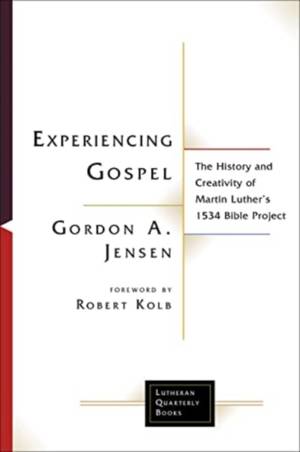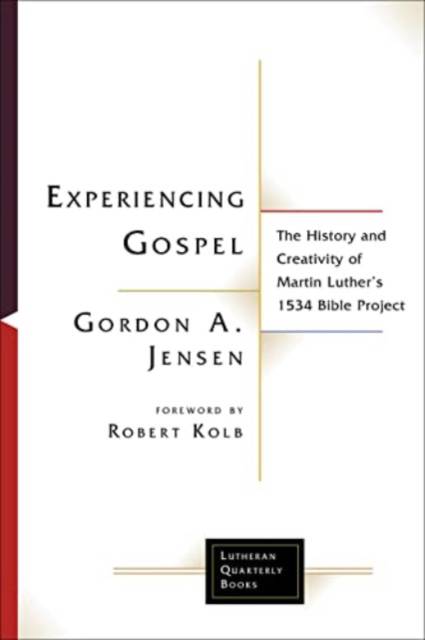
- Afhalen na 1 uur in een winkel met voorraad
- Gratis thuislevering in België vanaf € 30
- Ruim aanbod met 7 miljoen producten
- Afhalen na 1 uur in een winkel met voorraad
- Gratis thuislevering in België vanaf € 30
- Ruim aanbod met 7 miljoen producten
Experiencing Gospel
The History and Creativity of Martin Luther's 1534 Bible Project
Gordon A JensenOmschrijving
Gordon Jensen's careful analysis of the 1534 Luther Bible uncovers the central truth of Martin Luther's prodigious translation efforts: Luther's commitment to producing this physical object was founded in his desire that receiving the Gospel might become a lived experience. Contrary to popular perception, Luther's works were not the first, the freshest, or even the most user-friendly German biblical translations of the time. Rather, their power came in Luther's utter commitment to creatively sharing the Word ""so that people would encounter Christ within the pages of scripture and through scripture, thus driving Christ into their hearts and lives.""
Jensen locates proof of Luther's commitment in his deliberate decision to highlight seven specific words and phrases in the text of his 1534 translation. Combined, these terms provide a concise summary of Luther's Reformation theology: the source, voice, content, and command of the gospel. Skillfully tracing the theological implications of Luther's editorial decisions, Jensen provides readers with a crystalline view into the very heart of Luther's theological message. The written Bible is important not for its literary qualities or its ""inerrancy"" -- an irrelevant premise for Luther, as Jensen explains. Rather, the Bible's essential value is as the conduit through which Christ is proclaimed. Luther's hope was that once someone encountered the Bible, they ""would experience the gospel, and having experienced it, want to share this gospel so that others might experience Christ and the Word of life as well.""
Specificaties
Betrokkenen
- Auteur(s):
- Uitgeverij:
Inhoud
- Aantal bladzijden:
- 214
- Taal:
- Engels
- Reeks:
Eigenschappen
- Productcode (EAN):
- 9781506482941
- Verschijningsdatum:
- 5/12/2023
- Uitvoering:
- Paperback
- Formaat:
- Trade paperback (VS)
- Afmetingen:
- 152 mm x 228 mm
- Gewicht:
- 335 g

Alleen bij Standaard Boekhandel
Beoordelingen
We publiceren alleen reviews die voldoen aan de voorwaarden voor reviews. Bekijk onze voorwaarden voor reviews.









